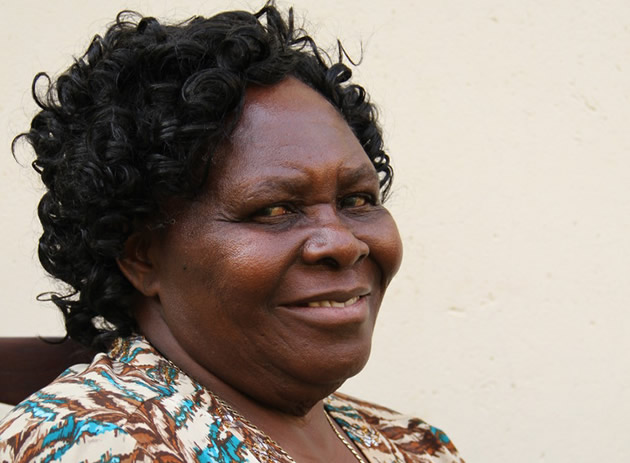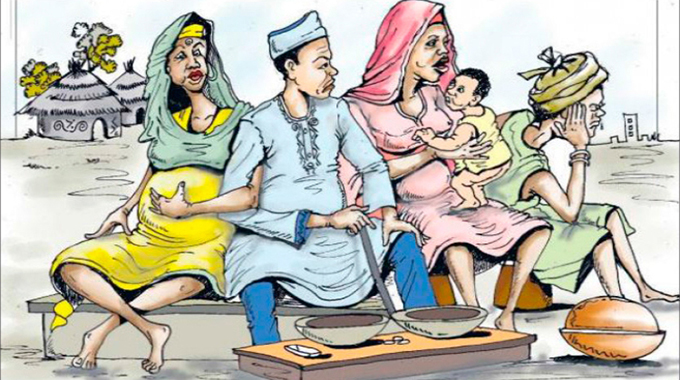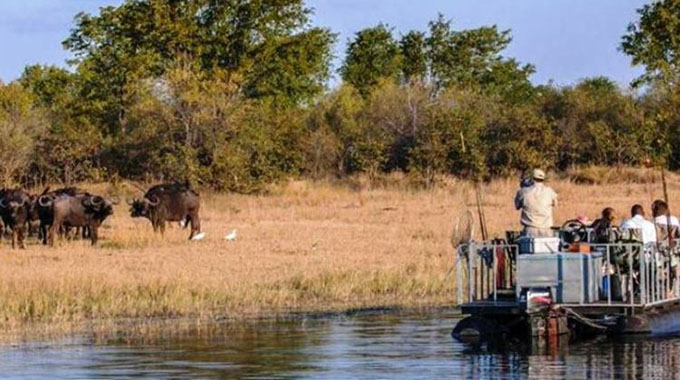The slogan and education during war
Back in the village in the land of milk, honey and dust or Guruve — if you like — the war was never a stroll in the park. By October of the Year of the People’s Power, combatants from Zanla, the military wing of Zanu, had liberated a vast swathe of land in Matsvitsi communal lands, at the centre of which was St Edward’s Chimufombo Primary School.
Chimufombo was a Catholic institution led by Father Hipler, a missionary of German origin.
This villager was in Grade Two and mathematics was beginning to sink into his skull, especially addition and multiplication. This villager was also beginning to understand the war of liberation and its values, vision and mantra.
Zanla combatants spent most of their time in classrooms, teaching subjects of their choice.
Chimufombo was the only school still open, the rest had been closed and people forced into protected villages by the Rhodesian Forces in a bid to avert contact and collaboration with freedom fighters.
Part of the political orientation for the youngsters like this villager was sloganeering, everywhere. Combatants with AK-47 assault rifles slung over their shoulders occupied themselves with teaching pupils, the future generation of Zimbabwe.
The guns were so special they were not mentioned by name. We called them firesticks. The combatants would come into our classes and teach us. My favourite were Cde Farai Kapfupi and Cde McDuff Mandebvu. They were very humorous and humble.
In fact, in my opinion those days, they were too nice to be carrying firesticks and killing the white man.
On my first encounter with them, I expected them to have tails and to be barbaric for Rhodesian Information Service propaganda portrayed them as real guerillas — wild, raw and dangerous to the villagers — so this villager spent a lot of time studying them.
“Cdes, one plus one, equals what?” Cde Mcduff asked.
“Pamberi neZanu! Pamberi neChimurenga, pamberi nekutonga! Pamberi naCde Robert Gabriel Mugabe. Pasi na- Smith, Pasi nemhandu! Answer ndi Two!” answered Tapfuma, my cousin.
“Good Cde! Sit down. Wagona!” the comrades would say. That became our style of answering questions in class until independence in 1980.
But how this villager got to Chimufombo is quite a story.
Far, far, away from Chimufombo, the Matuzviadonha Mountains, corrupted to Matusadonha by white Rhodesian settlers, rose majestically to the east, in craggy magnificence.
The greyish-brown lichen that smeared the stones made them look even much greater.
On the western foot of the mountains was Horse Shoe commercial farming area, named after the shape created between the mountains and Dande River as it twisted on its final journey to Mushumbi Pools.
We lived with grandmother, a nice old woman, well cultured and as soft as wool, yet very assertive and firm. The sun was too hot, this time of the year, breathing unfathomable heat and sending cicadas crying for divine intervention. Each day cicadas clung precariously to the tree buck and cried loud but the autochthons seemed to ignore them.
And, so how was the war. It has spread fast. Villagers took turns to feed the boys as the freedom fighters were affectionately called. They stayed in bush camps near Utete River and there, the rolling moorlands, high mountain heath and interlocking valleys made them very safe from the Rhodesian forces.
This day, it was granny’s duty.
At the base, the boys watched as granny offloaded. She was sweating.
A rivulet of sweat dropped from her temple to her eyes and down to the cheek. One of the rivulets traced a path to the corner of her mouth. Subconsciously granny tongue shot out and licked it up.
As was the norm, she took a morsel of sadza and relish and ate, to prove her revolutionary chastity. Then it was time to drink water. She then, drank avidly. She must have been very thirsty! She spilled some water which trickled down her body in little rivulets.
Satisfied, the boys ate and drank.
“Cdes, one plus one, equals what?”
She left her pottery-making business to prepare food for the boys. Grandfather sat under a huge tree, carving stools from wood. Like granny, grandpa also sold his wooden wares to whoever cared to buy. We left the village on a fast trot, the bush immediately consuming us. Granny carried a basket of food, while the two of us carried pots of water. Khama was a year older than this villager so he carried the bigger pot.
Half way through the journey granny tripped and fell into a gully, letting the basket full of food, go. Only a stunted bush shrubbery stopped the basket from rolling off the food. Of course, some of the soup spilled. We normally laughed at such incidents but this was no laughing matter, after all, the bush had grown ears and eyes, so we had been told by grandfather the other day.
Granny immediately summoned all her energy and using the side wall of the gully, she picked herself up and loaded the basket.
One hand on the basket overhead, the other trying to clean the dress by rubbing off dust, granny went into another fast trot. We followed.
At the base, the boys watched as granny offloaded. She was sweating.
A rivulet of sweat dropped from her temple to her eyes and down to the cheek. One of the rivulets traced a path to the corner of her mouth. Subconsciously granny tongue shot out and licked it up.
Salty! She wiped the sweat with the back of her hand but it still streamed down.
Then she took the loose high end of her wraparound cloth and wiped clearly this time around. Smart.
As was the norm, she took a morsel of sadza and relish and ate, to prove her revolutionary chastity. Then it was time to drink water. Kneeling on one knee by her side and supported by the crook of her arm, granny gently, very, very gently tilted the clay pot and held it to her lips.
She then, drank avidly. She must have been very thirsty! She spilled some water which trickled down her body in little rivulets. Satisfied, the boys ate and drank.
Unbeknown to us, two of them had travelled the whole journey alongside us from the village. We never noticed them. They talked about granny’s infamous fall and her resilience. We were amazed.
After their feeding, we set off for the village. A spitting distance away, granny stopped, tilted her head one side. She placed a finger in her ear, as if to clean the ear drum for sound clarity. She never rally trusted her ears but she picked the sound of army trucks, the Puma or Dim-Dim.
As we neared the village, there was a rare spectacle, very dangerous, we hid behind bushes and watched from afar.
The sound of roaring engines had heralded the arrival of the convoy on the outskirts of the village. The road was not more than just a track in the high bush, where tall grass brushed against both sides of the huge military trucks as they moved fast and tortuously in a convoy. Then, the unrelenting din of the combined thunderous roar of five high-powered engines driven in low gear, announced trouble the villagers had always expected.
The lead car suddenly broke into high speed and pulled to centre of granny’s homestead. Others followed suit but on other homestead. The soldiers beat everything, from doors, to goats, dogs, cats and people. “Ipi lo wena gandanga?” (Where is the guerilla?), one of them spoke in Silapalapa, a colloquial language used mainly on white owned farms.
We haplessly, saw grandfather being kneed, kicked, shoved and pushed, leaving the half-finished stool he was carving lying on shrivelled shavings. Granny’s unfired clay pots lay broken from the heavy boots. The grass thatch on each hut was torched. There was no time to rescue property. The soldiers waited for the fire to destroy everything, at times pointing their fire sticks at any villager who dared attempt to salvage anything.
That night, after the soldiers had left, we abandoned Negomo to seek refuge in Chimufombo, at my mother’s parents. Two days after arriving at Chimufombo this villager continued with Grade Two and found the teaching of the cdes astounding.
“Cdes, one plus one, equals what?”
“Pamberi neZanu! Pamberi nechimurenga, pamberi nukutonga! Pamberi na Cde Robert Gabriel Mugabe. Pasi na Smith, Pasi nemhandu! Answer ndi Two!”









Comments